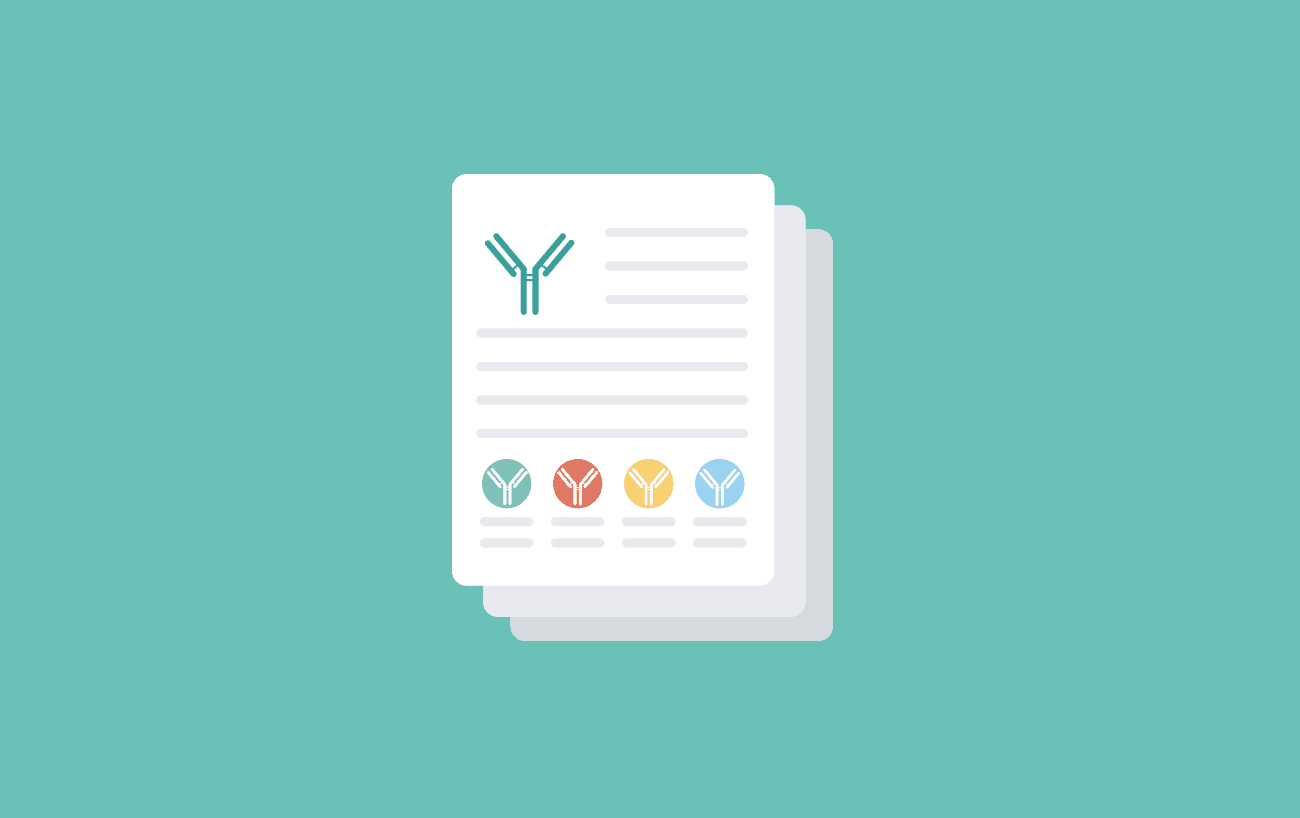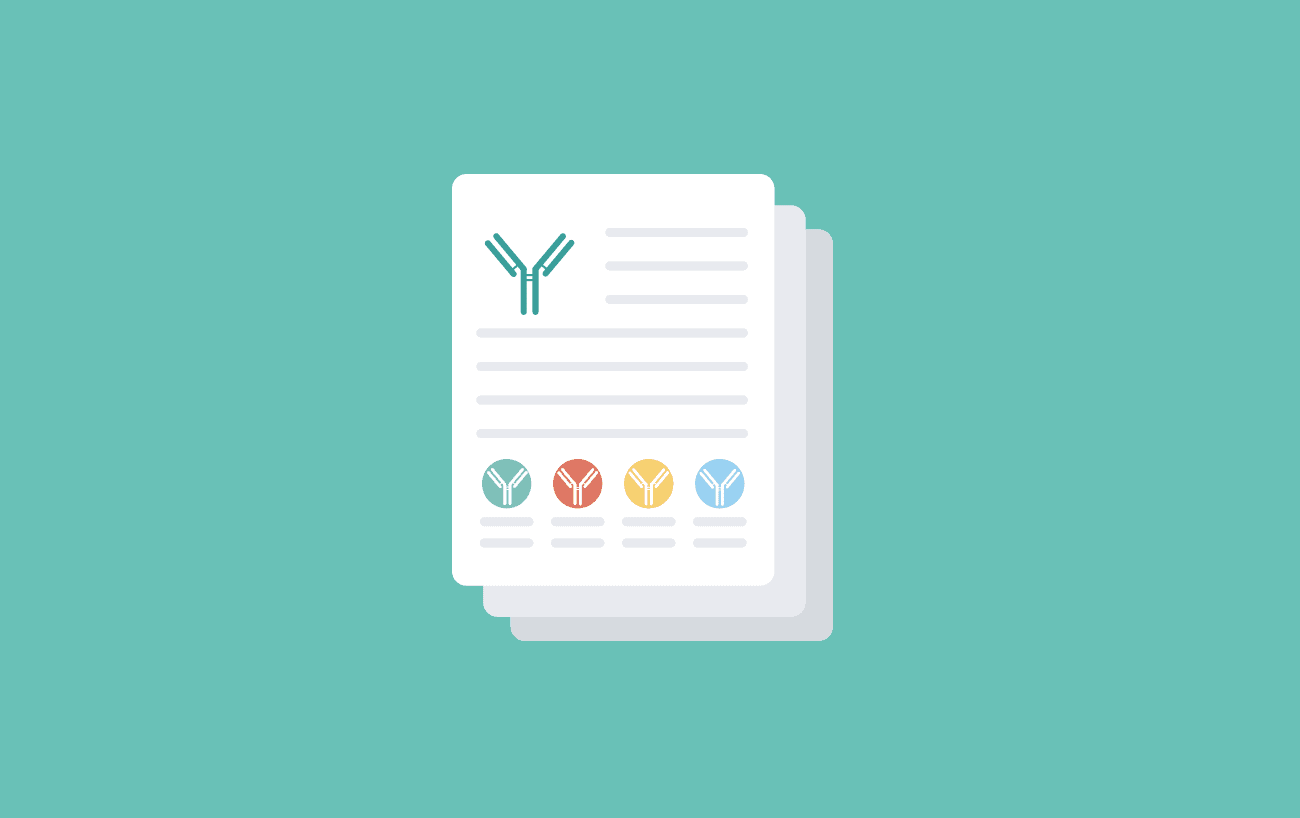Reliable antibodies are essential for reproducibility. Likewise, reproducibility is key whether you are planning to publish a ground-breaking research, or are carrying out routine assays. Therefore, reliable antibodies is a topic that is is frequently visited and discussed by the scientific community.
Initially, there was a greater onus on the researcher to check an antibody performed as it should in their assays. Current opinion places a larger obligation on the antibody manufacturer to ensure consistency and specificity for the antibody target. To get on top of this subject, we asked manufacturers for their opinions on antibody validation as part of our State of the Industry survey published in our 2019 antibody market report. In line with the current opinion, the 2019 survey shows that majority (57.6%) of manufacturers believe that antibody validation is a problem that should be tackle by the industry. In comparison, only 45.8% of the companies thought it was an industry problem in 2018. When asked to give suggestions on how to improve quality standards, 37% suggested the implementation of global standards.
Leading the way in this endeavor, is an international group of scientists proposing a set of standard validation principles. The International Working Group for Antibody Validation (IWGAV) has suggested 5 ‘pillars’ published by Uhlen, M. et al. in the scientific journal, Nature Methods. These pillars are a set of antibody validation techniques that can be use to ensure antibody reproducibility.
5 ‘pillars’ of antibody validation
- Genetic validation uses knock-down or knock-out of the target protein as a negative control.
- Orthogonal validation compares protein amounts detected by antibody staining to other protein determination methods.
- Independent antibody validation compares levels of antibody staining verses an independent antibody which is mapped to a different epitope on the same target.
- Recombinant expression validation either contrasts antibody staining of cell lysates from non- and over-expressing cells. Or, compares antibody staining of tagged recombinant target protein to levels detected by an anti-tag antibody.
- Capture MS validation utilises mass spectrometry to analyse proteins captured by the antibody of interest.
Potential solution
In 2015, a publication by Bradbury and Pluckthun in Nature caused a big shake to the research reagent market. Bradbury, Pluckthun and 110 co-signatories called for funding to allow the genetic sequencing of all hybridoma-produced monoclonal antibodies to key targets. As a result, they were able to describe inconsistent levels of characterisation between manufacturers and the potential problems associated with hybridomas. Furthermore, they proposed that replacing these antibodies with recombinant versions would ensure a never-ending supply of highly-characterised antibodies. Thus, promoting the transition towards the exclusive use of recombinant antibodies, and even suggesting the phasing out of polyclonal antibodies altogether!
At the 3rd International Antibody Validation Meeting held in Bath, the importance of antigens in antibody generation, characterisation and validation was also stressed. Speakers highlighted the need for them to be full-length, correctly-folded, ‘authentic’ proteins for effective antibody generation. Furthermore, there were discussion of things that should be taken into account when planning an antibody characterisation and validation strategy. This include antigen abundance and availability. On top of that, the role of scientists purchasing these antibodies cannot be ignored. With an emphasis on correct usage, antibody performance is application dependant. The IWGAV approach to antibody validation featured in presentations by some of the biggest players in the research antibody market. These market-leaders were keen to emphasise that they were not only testing their new products to these high validation standards, but were also investigating the quality of their current product catalogues.
Future…
This is a great progression for the research antibody market as a whole. Product manufacturers are increasing their breadth and depth of antibody characterisation and validation. Our State of the Industry survey revealed 75.8% of manufacturers have increased the amount of validation on their products over the past year. Companies offering recombinant antibodies are on the increase and more information are available to scientists. With the development of antibody review platforms such as Antibodypedia, and antibody manufacturers encouraging customers to post product reviews on their websites, scientists will soon have all the tools they need to confidently make informed decisions when purchasing antibodies.
Let us help you. Pivotal Scientific has compiled the most complete list of antibody suppliers that operate in the research market to help you locate your future partners.
References:
Uhlen, M. et al. (2016) Nature Methods.13: 823–827
Bradbury, A. and Pluckthun, A. (2015). Nature 518, 27-29
Written by Sharon Craggs – Technical Analyst



